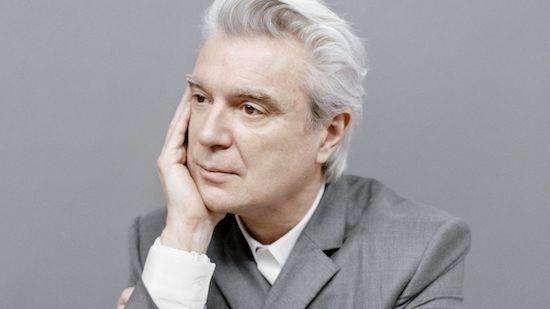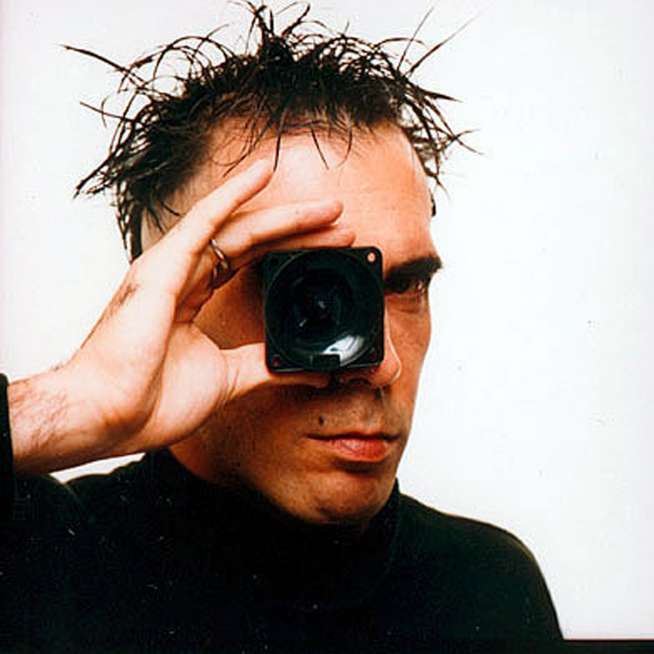David Byrne Confronts Hard Questions With American Utopia
Via Nashville Scene

Photo by Jody Rogac
By Stephen Trageser
Based on the events of the past five years, it’s not a stretch to say that American society is in crisis. The weakening of our institutions isn’t a sudden calamity, of course: Institutionalized racism and sexism, missteps in how we’ve adapted to the globalized economy and a host of other problems that affect huge numbers of people all have deep roots. In the Information Age, the extent of the damage is harder not to see.
This may seem like an odd time for David Byrne — who co-founded seminal art-punk outfit Talking Heads and has also had an extensive solo career across multiple media — to release an album called American Utopia. At first glance, you might expect either eggheaded willful ignorance or dull, on-the-nose sarcasm. Neither the record, nor the touring production designed around it nor Byrne’s accompanying lecture series Reasons to Be Cheerful is that naive or that cynical. All three come from the perspective that it’s going to take serious thinking and measured, active engagement to turn ourselves around.
“There’s an inventive spirit and a feeling that people can reinvent themselves, which goes back to de Tocqueville, and the idea that America could be a reinvention of what a country could be,” Byrne told The New York Times in an interview published March 7, just prior to the album’s release. “It also carries into individuals reinventing who they could be. I think a lot of the rest of the world still admires the United States for that, even if they despise the United States for many other things.”
The songs on American Utopia approach the issues from several angles. The LP begins with “I Dance Like This,” in which Byrne, who turns 66 on May 14, commiserates in a non-patronizing way with young people who are struggling to get by in today’s economy. “Bullet,” a jaunty carnival tune, details a shooting in slow motion, turning the focus on the victim by describing every part of his body that the bullet passes through in terms of his aspirations and the people he’s close to. “Everybody’s Coming to My House” considers both the benefits and the challenges of globalization: “I’m never gonna be alone / They’re never gonna go back home,” Byrne sings. “Doing the Right Thing” illustrates how the anxiety-inducing situation we’re in can lead people to take action that’s well-intentioned but misses the mark — something Byrne isn’t immune to.
On Feb. 28, a sepia-tone photo collage depicting 26 musicians invited to contribute to American Utopia appeared on Byrne’s social media, along with a Spotify playlist highlighting their work. All but two appear to be white, and all are men. Some fans were disappointed; others were livid. No one was calling for him to meet a quota, but when a successful artist actively reaches out for collaborators, that artist has a noteworthy opportunity to bring diverse voices into the mix. Byrne responded to the criticism with humility.
“This lack of representation is something that is problematic and widespread in our industry,” he wrote in a post on March 5. “I regret not hiring and collaborating with women for this album — it’s ridiculous, it’s not who I am and it certainly doesn’t match how I’ve worked in the past. It doesn’t represent my current live show, which has a slew of diverse creators and collaborators, making this even more negligent on my part.”
The touring ensemble, the visible part of that collective, consists of 12 people including Byrne. Five appear to be people of color, and two of those five are women. It’s not equal representation, but neither is it a homogeneous group.
Choreographer Annie-B Parson, who has worked with Byrne on many previous projects, helped him produce a show for the tour that’s like an extended routine for a very creative marching band. The group, dressed in matching gray suits and carrying instruments, traverses a bare stage, moving up and down, back and forth, in and out of formation as they play songs that cover a wide swath of Byrne’s catalog.
The set list includes seven cuts from American Utopia, a handful from Byrne’s other solo records, pieces from his collaborative works and Talking Heads classics. The songs are tied together by observations that are relevant to the mess we’re in and the ways we can come out of it a stronger people. Some examine the intricacies of human connection, as in “Dancing Together” from Here Lies Love, Byrne and Fatboy Slim’s operetta about Imelda Marcos. Others explore the role media play in shaping society, like “I Should Watch TV,” from Love This Giant, Byrne’s 2012 album with St. Vincent. Others still simply express bewilderment and dismay that hit close to home, like Talking Heads’ “Once in a Lifetime,” which famously asks: “How did I get here? My God, what have I done?”
The lone cover functions as an exclamation point at the end of the show: “Hell You Talmbout,” a march composed by Janelle Monáe to commemorate the lives of people of color who died during confrontations with police or other racially motivated incidents. Between refrains, the performers chant the names of the dead, as a call to keep their personal stories at the center of the discussion — to not let Sandra Bland, Trayvon Martin, Emmett Till and others become faceless statistics.
Byrne, a successful musician and artist, fits into the broad definition of the liberal elite. Even though his class shares some of the blame for our current social and political climate (though not as much as conservative TV personalities would have us believe), it’s clear from his current projects that he’s trying to be part of the solution.
